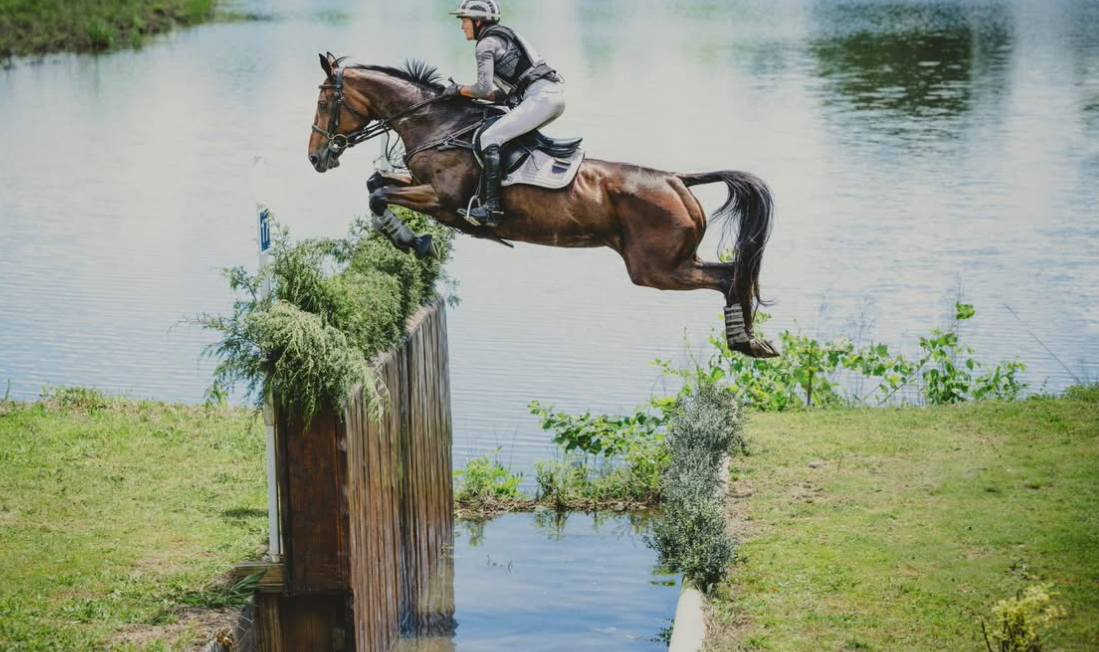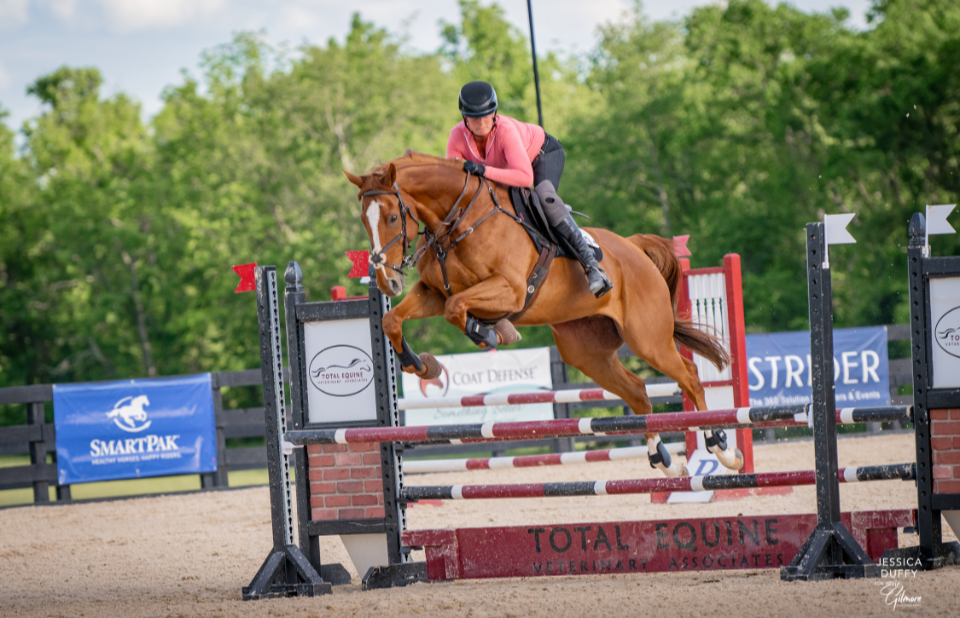EN guest writer and our UK connection, LEC, was kind enough to write for Eventing Nation about the coaching system in the UK. In the US, we spend a lot of time admiring the success of the UK rider development program, and a big part of developing good riders is developing good caches. I was particularly interested in thinking about how the UK system compares to the USEA Instructor Certification Program. Thanks for writing the LEC and thank you for reading.
—-
From LEC:
Trainers
At the moment, thinking about trainers and training is at the forefront of my mind. In a sport where safety and confidence is vital, having a good trainer is absolutely critical. I thought I would just write about the UK system and take a brief look at training and trainers.
In the UK we have two systems to become a trainer. There is the traditional British Horse Society (BHS) route and also the newer but increasingly popular United Kingdom Coaching Certificate (UKCC).
The BHS route is the classic route to become instructors. There are three stages you have to pass in stable management and riding. The final aspect is something called the Practical Teaching Test (PTT) which is about you being able to communicate and actually teach. Previously, you also had to complete 250 hours of teaching. Once you have passed all the stages and assessments, you gain a qualification called Assistant Instructor (BHSAI). The next level that can be achieved is Intermediate Instructor (BHSII) and followed by Instructor (BHSI).
The BHS has many advantages because it’s a consistent system and all the basics are in place before people can get the qualification. It’s also worldwide recognised as a standard. The problem is that just because someone has their AI does not mean they are very good instructors and actually have done enough to pass the exams without having any true depth or experience. To be fair to the BHS, they are trying to improve with the times, but progress is sometimes slow. For example, many instructors stop progressing because they have to jump 1.20m to reach BHSII and they do not feel confident enough to do this, but they are good instructors. The BHS is changing this and allowing potential trainers to just do flatwork instead of jumping. I could go on and on about the pros and cons, but I have deliberately kept it simple!
The UK Coaching Certificate is fairly new programme and is all about developing coaches. The UKCC came out of a review of coaching and coaching qualifications within all major sports across the UK. Key findings were:
1) There are many capable and experienced people involved in coaching/teaching and instructing
2) There is a lot of variation in the quality of coaching and coaching qualifications across sports
3) Sports are inward looking and don’t work together
4) We can all learn from each other and looking at other sports
5) Significant Government support for coaching–The BEF is endorsed to deliver (in partnership with our member bodies) at UKCC levels 1, 2 and 3 and equestrian is a priority sport being supported to implement the UKCC.
UKCC principles
· Puts Riders at the heart of what coaches do
· Flexible qualification for all in all coaching environments; technical pathways for riding, driving, vaulting and discipline specific such as endurance, RDA, dressage, show jumping and eventing at different levels.
· Builds on existing good practice and provides a career structure.
· On-going opportunities for training and development.
· Aspiring Coaches can be assured of standardised qualification.
Source: www.bef.co.uk
One of the advantages of the UKCC is that riders and trainers who are currently not BHS registered have a pathway into correct coaching and rider development. British Eveting is putting a lot of time and effort into promoting the UKCC, and all the top coaches within BE are expected to have done it. Coaches need to be able to teach at FEI 2* level but for their portfolio are allowed pupils who are aiming fro FEI 1* level. In order to pass you need to complete a portfolio of coaching and also attend an assessment day.
Once you have your UKCC level 3 you can become a BE accredited coach and also go on the BHS register.
Accessing Trainers–In the UK one of the advantages we have is the wide range of trainers available at all levels. There is no set system for producing horses and riders–unlike outrcontinental neighbours in Germany who have a very rigid structure, there are many different approaches and most good trainers take the best bits from everything.
BE over the years has made a huge push in getting riders more educated. There are now several programmes in place which any rider can access coaching from top class trainers.
Schemes for the average rider include:
Coaching Development Training Days – these are held throughout the country and different locations. Riders normally pay £75 for a days training which includes normally a 90 minute group lesson on your horse in an arena, and you go through cross country training – how to ride skinnys, corners, dog legs etc. In the afternoon there is video sessions about cross country, discussions over nutrition, balance and fitness and other aspects of the sport.
Grassroots Showjumping – This is a competition where you jump a course and are watched by a qualified trainer. When you have finished your round you are given feedback and helped in the warm up. You then jump another round and given feedback again.
JAS – This stands for ‘Jumping and Style.’ BE wanted to earn extra income during the winter months and devised JAS which is held in an indoor arena. This is a competition where you jump a round of show jumps then go immediately onto simulated cross country fences. The times are quite tight and you are given marks for Style by a BE coach. There are several qualifiers throughout the country then a final.
EHOA – The Event Horse Owners Association runs training sessions throughout the country. It costs £20 a year to join and part of that is a £10 voucher to use with a trainer. Trainers include William Fox Pitt, Pippa Funnell and Yogi Breisner. Any member can also apply for a training bursary of £200. Any rider of any level can apply for this and they hand out 11 awards a year.
U18 Training – There is a large programme of training for U18s. They have regular sessions with top trainers in order to educate and get the best out of them.
On top of these methods individual trainers will organise clinics which are advertised on their websites or on the BE website.
Costs
One of the things I am always horrified about is the cost of training in the USA. I think in order to promote safety and encourage good standards, good training should be easily available for anyone who competes or wants to compete. Just because I am not on a list to get on a team does not mean I do not want the best training I can get.
A lesson with Yogi Breisner privately for 45 minutes will set you back around £60. Getting ahold of him is another matter because he is normally all over the country running sessions and training the different teams.
A lesson with William Fox Pitt is about £40 if you travel to him. Again it’s a case of finding a time he can do it. I have a friend who had a few lessons with him and thought he was fabulous. He then really helped her when she saw him at an event. I have seen a clinic at a local cross country being advertised with him at £125 for a 90 minutes group lesson which is extortionate. So someone somewhere is making good money out of that!
The average rider can access two days show jumping training with former World Champion and Olympic Silver Medallist David Broome for £75 (two lessons a day) including stabling.
My trainer, Jo May has, competed very successfully at 4* level including coming 4th at Luhmuhlen and charges £35 if I travel to her. As she is only 20 minutes away this is not too much of a hardship. I feel incredibly lucky to be able to have such a good trainer on my doorstep.
Finally, in the UK there are a huge number of equestrian centres who run clinics with top riders. A 2 hour group lesson with Mary King is about £60. Lucinda Green is the most expensive at around £75 for a 2 hour group lesson.
There are also a large number of BE accredited trainers who riders can access and who are widely published on the website and the rule book.
Final Thoughts
The one thing I have learned with horses is that there is no single right way but that a good trainer will keep you safe, inspire you and give you confidence. Not every coach suits every rider but a good coach will train the brain of the rider to train the brain of the horse.
A good coach is interested in you and not just in your money. They want you to do well and will look at the small details to make sure you are going to reach your goals. There is nothing more demoralising than turning up and just being told “good job” when you know it’s not that good.
A trainer/coach who has made the effort to get qualifications is a coach, who wants to be a good coach, will have good foundations and will be an effective coach. Often riders make excuses saying their trainer is not qualified but has a really good competition record or that they have a lot of experience but personally I will not ride with someone who has not made the effort to get qualifications. I am protecting myself and my horse from a bad experience. I am not saying all qualified trainers are brilliant or that all unqualified are a liability just that if you know they are qualified then you have a solid foundation, they will be insured and first aid qualified.
I also think its vital that trainers/coaches are not just standing still as a trainer and that they are attending conferences, auditing top class trainers, and pushing their learning because a trainer who is not open to new ideas or suggestions will always be limited. Thanks for reading about the UK coaching system.






















